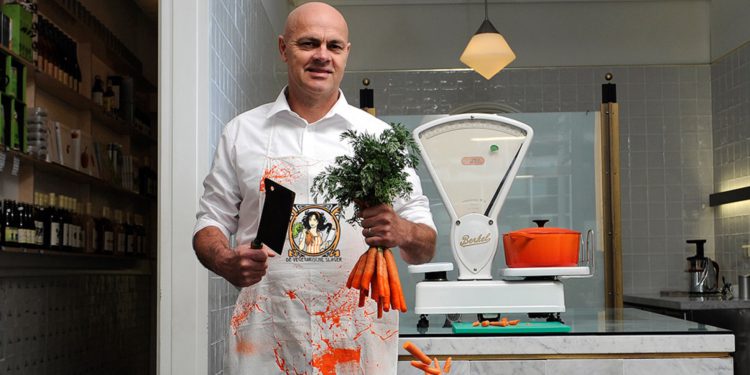Unilever’s €1 billion-heft has jet propelled sustainable food into the mainstream commercial psyche.
It yesterday announced the rock star sales target of €1 billion annual sales in plant-based meat and dairy substitute products – an eye watering uptick from expected sales of €200 million in that category this year.
The company has given itself between five and seven years to reach the €1 billion figure. Its new strategy neatly folds sustainability concerns into profitable products.
Hanneke Faber, Unilever’s President of Foods & Refreshment said, “As one of the world’s largest food companies, we have a critical role to play in helping to transform the global food system.
“These are bold, targets which demonstrate our commitment to being a force for good. It is widely recognised that current global food system is inequitable and inefficient.
“One billion people around the world are hungry while two billion are obese or overweight.
“One third of all food produced is thrown away. And animal agriculture is the second largest contributor to greenhouse gas emissions after fossil fuels and a leading cause of deforestation, water and air pollution and biodiversity loss.”
“Unilever’s commitment on food waste will lead others to take action”
The plan includes rolling out further products from The Vegetarian Butcher, a Dutch company it bought two years ago. It will also increase the vegan alternatives available through Hellman’s, Magnum and Walls.
The approach is called a Future Food ambition, designed to encourage healthier diets and reduce the environmental impact of the food chain.
The company’s plant-based credentials soared last year when it beat out the competition to supply Burger King’s Plant-Based Whopper and Plant-Based Nuggets across Europe, the Middle East and Africa.
Unilever says the global plant-based meat market is growing at a rate of 15.8% each year and will reach $35.4 billion by 2027.
It says Barclays estimated the wider plant-based market could grow by over 1,000% over the next 10 years, reaching $140 billion by 2029. Already 92% of plant-based meals in the UK are consumed by 22 million non-vegan “flexitarians”.
Liz Goodwin, Senior Fellow and Director at the Food Loss And Waste at World Resources Institute said the planet needs companies like Unilever to prioritise the issue of food loss and waste.
“Given the size and reach of Unilever, their commitment to halve food loss and waste across their global operations will undoubtedly lead others to take action as well,” she said.
“We know that food loss and waste contributes to about eight per cent of global greenhouse emissions as well as wasting the land and water used in production of food.”
Unilever said it is committed to:
- Halving food waste in direct global operations from factory to shelf by 2025 – five years earlier than previously expected.
- Doubling the number of products delivering positive nutrition globally by 2025 – defined as products containing impactful amounts of vegetables, fruits, proteins, or micronutrients like vitamins, zinc, iron and iodine.
A recently announced partnership with microalgae expert Algenuity will help the company meet its sustainability and nutritional targets. Algae is rich in protein, antioxidants, vitamins and minerals.
With emulsifying and enriching properties similar to eggs, it can be added to mayonnaise, soups, sauces, meat alternatives, baked goods and pasta across brands including Hellmann’s, Knorr and the Vegetarian Butcher.
In 2019, Unilever invested €85 million The Hive, a food innovation centre at Wageningen University in the Netherlands to support research into plant-based ingredients and meat alternatives, efficient crops, sustainable food packaging and nutritious food.
Unilever is committed to a deforestation-free supply chain by 2023 and net-zero emissions for all products by 2039. It aims to ensure 100% of its plastic packaging is reusable, recyclable, or compostable by 2025.























